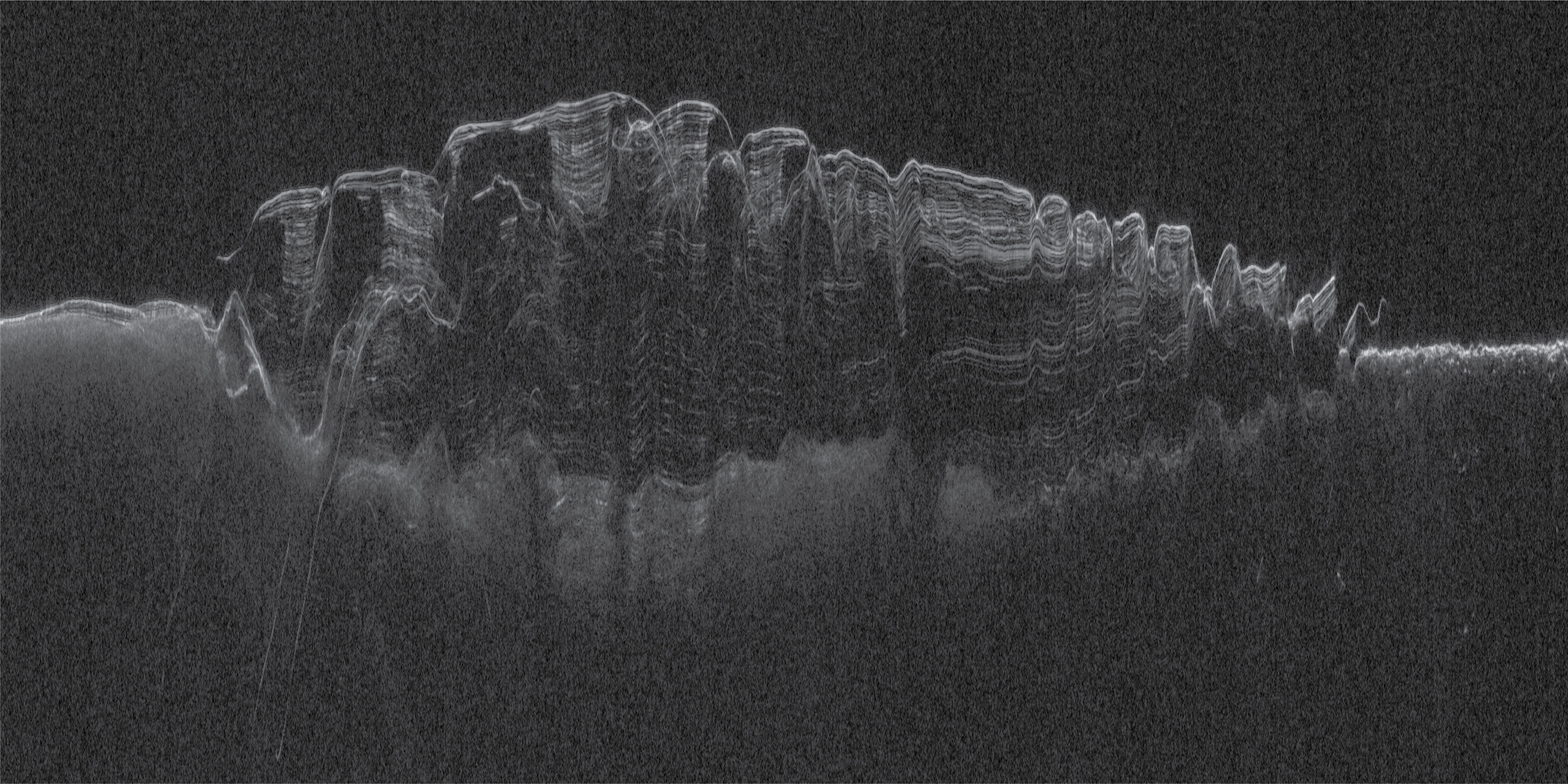Mars Reconnaissance Orbiter
Shallow Radar Sounder
The Mars Reconnaissance Orbiter (MRO) Shallow Radar (SHARAD) sounder emits a 10-watt chirped pulse downswept from 25 to 15 MHz, yielding a 15-meter range resolution in free-space.

Dielectric contrasts between the atmosphere and surface and between layers in the subsurface (e.g., water and carbon-dioxide ices, ash deposits, lava flows) reflect a portion of the radar signal back toward the spacecraft. The returned signals are detected by the same SHARAD antenna that transmitted the original signal moments earlier. The data are processed onboard and back on Earth to produce 2D radargrams, which are cross-sectional views of the returned signal power along MRO's ground track.
For more information regarding SHARAD operations, data collection, and processing, please review the relevant SHARAD PDS Documentation.
SHARAD was provided to MRO by the Italian Space Agency (ASI) and is operated under contract to SHARAD Team Leader Roberto Seu at the Dipartimento di Ingegneria dell'Informazione, Elettronica e Telecomunicazioni (DIET), Sapienza – Università di Roma. U.S. team members contribute to operations through the coordination of instrument targeting, led by U.S./Deputy Team Leader Nathaniel Putzig, at the Planetary Science Institute (PSI).

